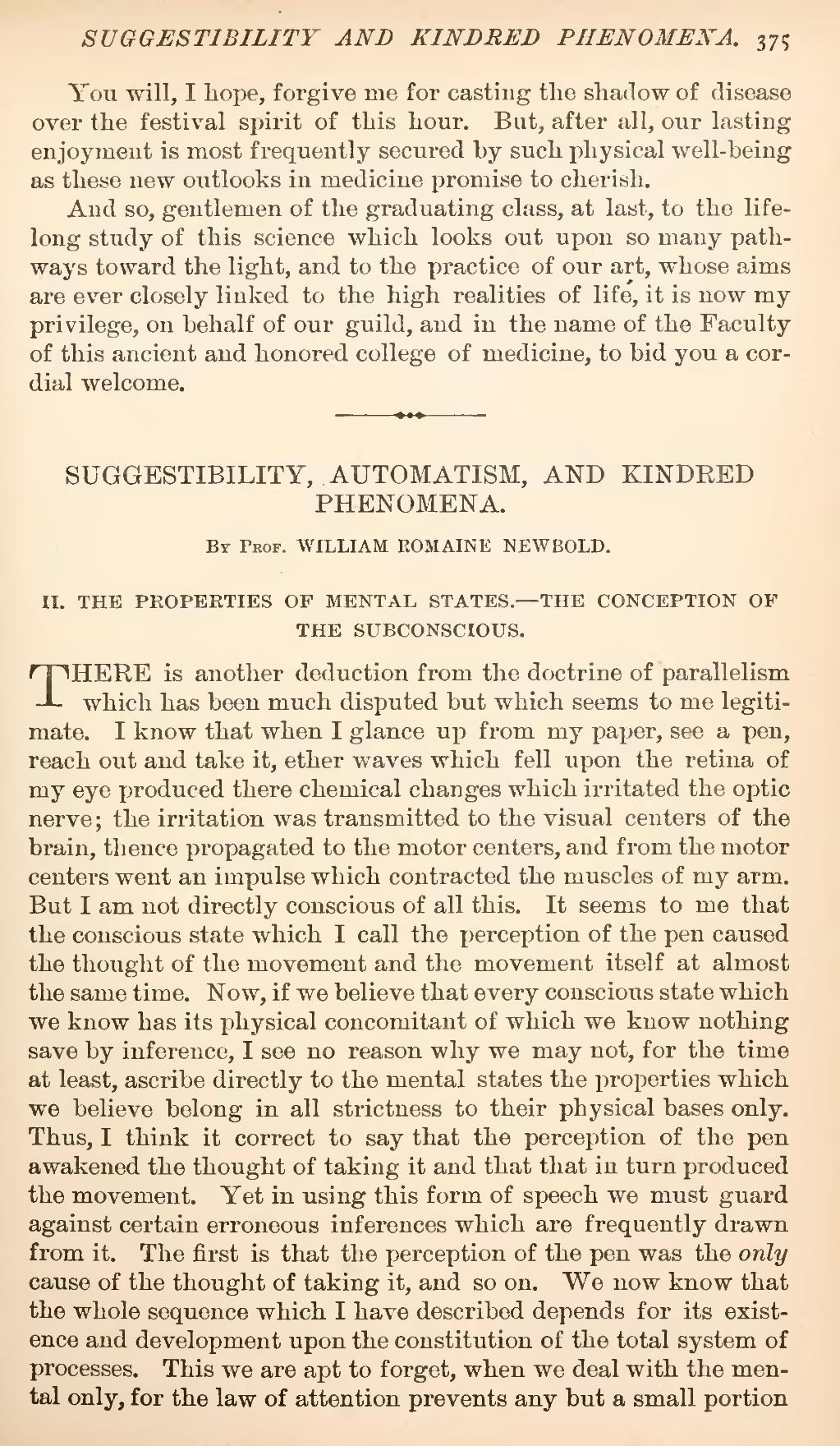You will, I hope, forgive me for casting the shadow of disease over the festival spirit of this hour. But, after all, our lasting enjoyment is most frequently secured by such physical well-being as these new outlooks in medicine promise to cherish.
And so, gentlemen of the graduating class, at last, to the lifelong study of this science which looks out upon so many pathways toward the light, and to the practice of our art, whose aims are ever closely linked to the high realities of life, it is now my privilege, on behalf of our guild, and in the name of the Faculty of this ancient and honored college of medicine, to bid you a cordial welcome.
| SUGGESTIBILITY, AUTOMATISM, AND KINDRED PHENOMENA. |
By Prof. WILLIAM ROMAINE NEWBOLD.
II. THE PROPERTIES OF MENTAL STATES.—THE CONCEPTION OF THE SUBCONSCIOUS.
THERE is another deduction from the doctrine of parallelism which has been much disputed but which seems to me legitimate. I know that when I glance up from my paper, see a pen, reach out and take it, ether waves which fell upon the retina of my eye produced there chemical changes which irritated the optic nerve; the irritation was transmitted to the visual centers of the brain, thence propagated to the motor centers, and from the motor centers went an impulse which contracted the muscles of my arm. But I am not directly conscious of all this. It seems to me that the conscious state which I call the perception of the pen caused the thought of the movement and the movement itself at almost the same time. Now, if we believe that every conscious state which we know has its physical concomitant of which we know nothing save by inference, I see no reason why we may not, for the time at least, ascribe directly to the mental states the properties which we believe belong in all strictness to their physical bases only. Thus, I think it correct to say that the perception of the pen awakened the thought of taking it and that that in turn produced the movement. Yet in using this form of speech we must guard against certain erroneous inferences which are frequently drawn from it. The first is that the perception of the pen was the only cause of the thought of taking it, and so on. We now know that the whole sequence which I have described depends for its existence and development upon the constitution of the total system of processes. This we are apt to forget, when we deal with the mental only, for the law of attention prevents any but a small portion

